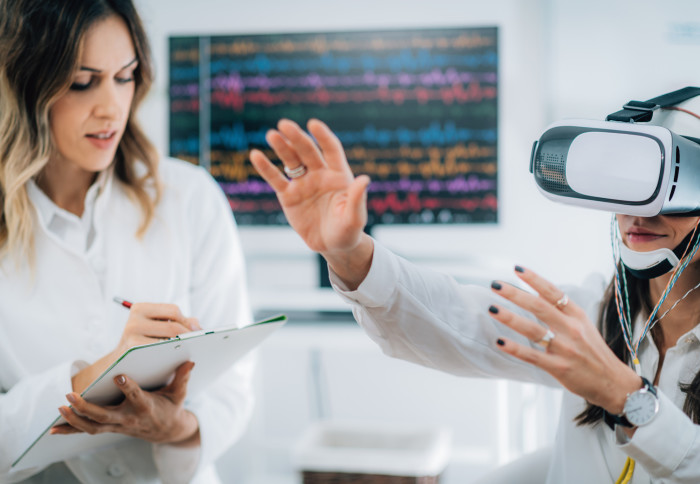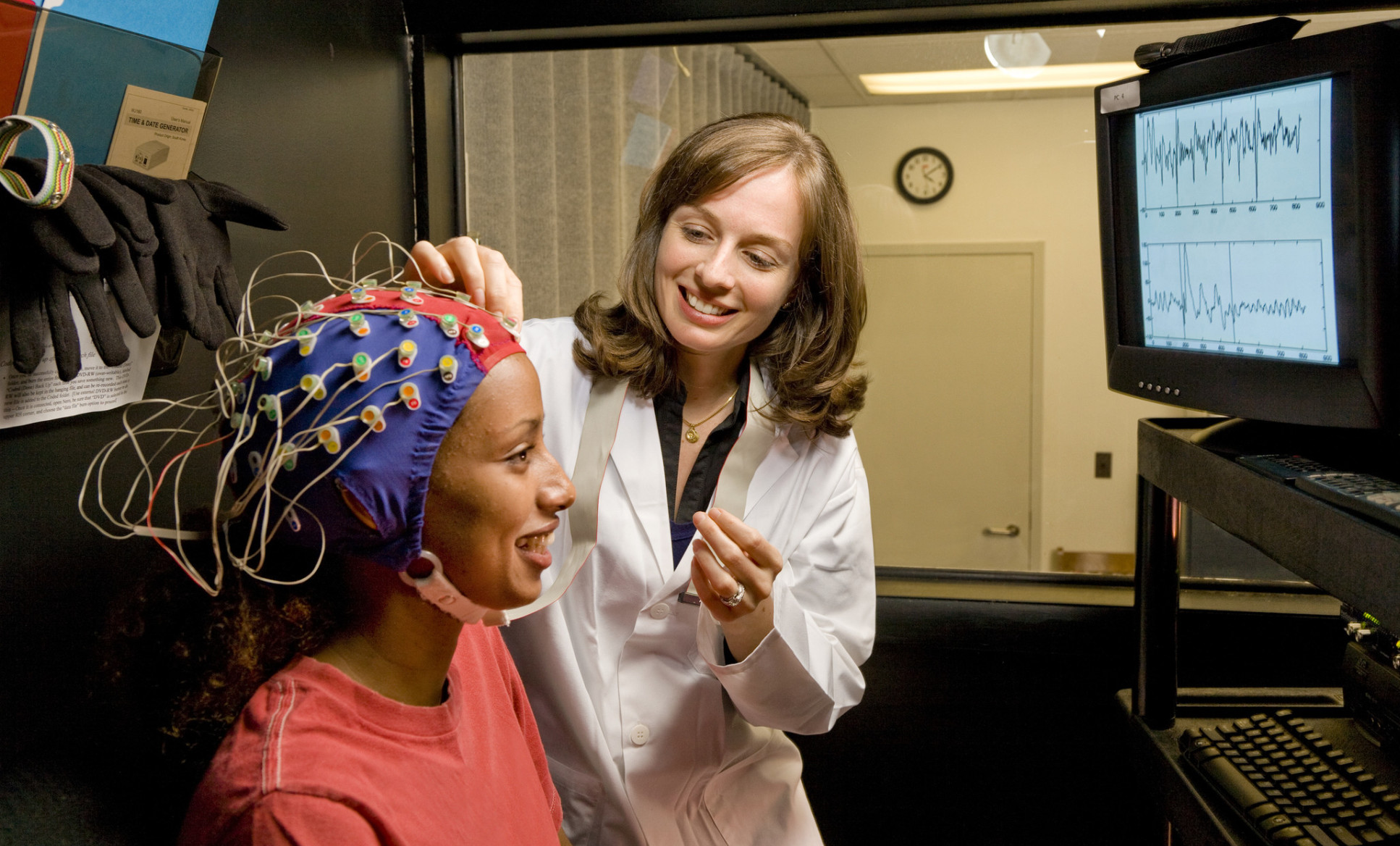
Global S&T Development Trend Analysis Platform of Resources and Environment
| Imperial startup wins global competition for its brain-computer interface tech | |
| admin | |
| 2021-12-10 | |
| 发布年 | 2021 |
| 语种 | 英语 |
| 国家 | 英国 |
| 领域 | 资源环境 |
| 正文(英文) | 

Cogitat has won a prize for a technology that could make it possible to control machines using the brain – and enable more life-like virtual reality. The Imperial startup won first prize after it outperformed competitors in an international competition to find the best machine learning technologies for identifying brain states and behavioural intentions using brain waves. Medical applications of brain-computer interfaces include restoring movement after an accident. A newly emerging application is increasing the realism of virtual reality. The BEETL AI Challenge for EEG Transfer Learning competition, sponsored by Facebook Reality Labs, was held as part of the prestigious NeurIPS 2021 machine learning conference. It sought to identify the global teams and companies that have the best machine learning technologies for accurately identifying brain and mental states from electroencephalogram (EEG) data. Effective technologies in this space could be used for improving medical diagnostics or to power brain-computer interfaces, which allow users to control machines without physical controllers. Eventually, they could be a key technology behind the ‘metaverse’, a hypothesised future version of the internet that consists of virtual reality 3D environments. Harnessing EEG data
EEG devices have long been used in medical and research settings to non-invasively measure electrical activity in the brain. However, it is very challenging to accurately identify brain or mental states using EEG data, because the data is very noisy and relationships between electrical activity and brain or mental state vary both between individuals and within individuals from one moment to the next. Advances in machine learning, especially deep learning, are starting to make it possible to identify complex relationships that obtain consistently across individuals between EEG measurements and brain or mental states such as motor intentions. Software based on these advances could be used for a variety of applications, notably to drive brain–computer interfaces. Cogitat demonstrated a clear advantage over competitors in the competition’s tests, which involved interpreting EEG data on sleep and motor intentions. In a field of over 110 teams from academia and industry, Cogitat achieved 1st place in the motor imagery decoding task with a sizeable margin over the competition – a 5% difference from second place and 16% from third place – and 1st place overall in the competition. The team attribute their success to their concentration on machine learning and software, which they are focusing on while remaining hardware-agnostic. it is very challenging to accurately identify brain or mental states using EEG data, but machine learning is starting to make it possible. Dr Dimitrios Adamos, Cogitat’s co-founder and CTO and Imperial research fellow said: “Our team combines advanced domain expertise in machine learning and neuroinformatics. Our technology focuses on motor imagery decoding, robust to anatomical and neurological differences between users and different EEG recording setups. These sources of variability undermine the reliability of EEG decoding and have hindered the widespread use of EEG outside laboratories for years”. Stefanos Zafeiriou, Cogitat’s co-founder and Chief Scientist, and Professor in Machine Learning & Computer Vision in Imperial's Department of Computing, said: “We’re using very specialised deep learning technology, specific to this application and tailored to interpreting EEG signals. Our success reflects the world-leading expertise in machine learning of my lab at Imperial and the leading neuroinformaticians we have at the company.” Dr Rebeca Santamaria-Fernandez, Director of Industry Partnerships and Commercialisation (Engineering) at Imperial, said: “I’d like to wish Cogitat big congratulations on this win, which demonstrates their technology’s great potential to power next-generation brain-computer interfaces. The team’s academic and commercial expertise, and their track record successfully commercialising technology and data developed at Imperial, puts them in a great position to pioneer impactful technology that seamlessly merges mind and machine.” The future of virtual reality
We could have VR games for rehabilitation, or games that could improve reaction times and performance in sports. Allan Ponniah CEO of Cogitat Allan Ponniah, Cogitat’s CEO, said the company is interested in a variety of use cases, especially within virtual reality: “We’ve been hearing about virtual reality for decades, but the computing power to create these environments, and the level of investment, suggests that now is finally the time. We’re equally interested in entertainment and medicine. There is also a space where the two come together. We could have VR games for rehabilitation, or performance enhancing games that could improve reaction times and performance in sports. For me, that interplay is the most interesting thing.” The company is currently continuing to pursue real world applications of the technology and is seeking partnerships with other technology companies in the VR and gaming industries to fully realise the opportunities created by the new era of wearable devices. |
| URL | 查看原文 |
| 来源平台 | Imperial College London |
| 文献类型 | 新闻 |
| 条目标识符 | http://119.78.100.173/C666/handle/2XK7JSWQ/342966 |
| 专题 | 资源环境科学 |
| 推荐引用方式 GB/T 7714 | admin. Imperial startup wins global competition for its brain-computer interface tech. 2021. |
| 条目包含的文件 | 条目无相关文件。 | |||||
| 个性服务 |
| 推荐该条目 |
| 保存到收藏夹 |
| 查看访问统计 |
| 导出为Endnote文件 |
| 谷歌学术 |
| 谷歌学术中相似的文章 |
| [admin]的文章 |
| 百度学术 |
| 百度学术中相似的文章 |
| [admin]的文章 |
| 必应学术 |
| 必应学术中相似的文章 |
| [admin]的文章 |
| 相关权益政策 |
| 暂无数据 |
| 收藏/分享 |
除非特别说明,本系统中所有内容都受版权保护,并保留所有权利。
修改评论